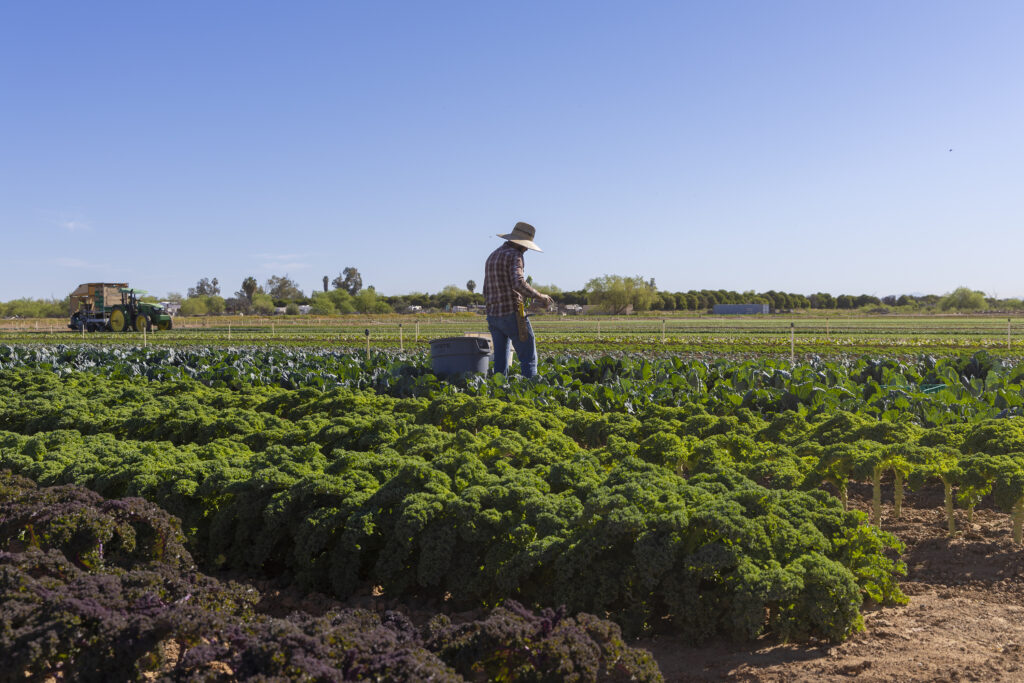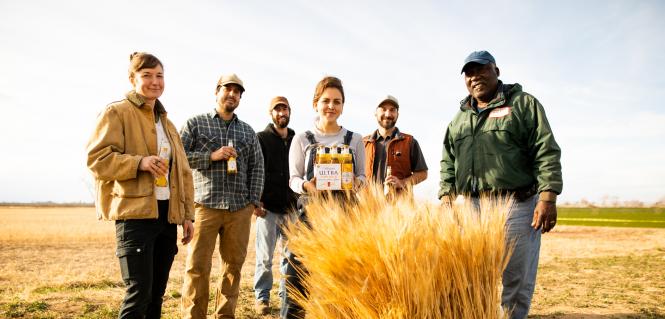Blue Sky Organic Farms in Arizona – CCOF Certified and TOPP Partner Farm
American farmers should feed American families. And American families are increasingly looking for minimally processed organic foods free from artificial colors, preservatives, and flavors, and safe organic fruits and vegetables that contribute to healthy communities.
The rising consumer demand has led to organic food sales growth outpacing organic farmland growth for the past 25 years—creating a major opportunity for more American farmers to transition to organic. Between 2011 and 2021, organic imports jumped from $0.8 to $2.7 billion while organic exports remained around $0.6 billion. America is importing billions of dollars’ worth of organic crops like corn, rice, soybeans, avocados, blueberries, strawberries, and squash that are also grown here at home. This lopsided trade is a missed opportunity for American farmers and the U.S. economy.
The solution? USDA’s Transition to Organic Partnership Program
The Transition to Organic Partnership Program (TOPP) provides critical funding to build the domestic supply of organic food and products by helping American farmers successfully transition to healthy organic agriculture practices through mentorship, technical assistance, and workforce development. The program is transitioning hundreds of thousands of acres of land to certified organic production, increasing market opportunities for domestic growers.
By transitioning to organic, farmers opt-in to a voluntary certification framework that provides a competitive market advantage to farmers who adopt conservation practices that encourage soil health and support a variety of natural resources while providing transparency to American consumers who value healthy food and communities.
Where does CCOF come in?
TOPP is a nationwide program, with six regional centers supporting organic transition across the country. The CCOF Foundation leads the Western and Southwestern Regional Center for Organic Transition working with a coalition of partners providing support for producers in Arizona, California, Hawaii, Nevada, New Mexico, Utah and Texas. The program facilitates workforce training and development, technical assistance, mentorship, and farmer collaboration.
“One of our mentee farms was able to become certified! A 20-acre coffee farm was able to enroll in the program and through the mentorship was able to streamline their application process. They were able to complete their application and submit it in record time and this can be attributed to the direct support of the mentorship through TOPP.” – Hawai’i Farmers Union Foundation (CCOF TOPP Partner)
Over the past two years—the duration of the program thus far—75,000 acres of land have transitioned to organic production, and nearly 5,000 farmers have sought support to transition some or all of their farmland to organic production through TOPP nationwide. In the Western and Southwestern region specifically, 139 operations have achieved organic certification with assistance from TOPP, and TOPP partners hosted 167 events with a combined reach of 10,231 attendees, the majority of which focused on providing technical assistance to producers.
“Our organic outreach coordinator has experienced feedback while traveling around the state including, ‘You’re the organic person!’, ‘I’ve heard about TOPP before’, and ‘I saw your presentation [at] X or Y event.’ Small things… indicate our outreach efforts are beginning to spread and be recognized!” – Utah State University (CCOF TOPP Partner)
Why is growing organic good for America?
Bolstering the domestic supply of organic foods, ingredients, and inputs through programs like TOPP helps safeguard American farmers and businesses, create jobs, and stabilize our supply chain in the face of foreign market instability.
Farming is the backbone of rural America. Organic farmers help drive rural economic growth by investing in their communities. Rural counties with organic farming or food manufacturing hubs tend to have lower poverty rates because the organic supply chain is more localized, keeping money within the community. Expanding domestic organic production will make organic food and products more accessible to all Americans – both in availability and price.

